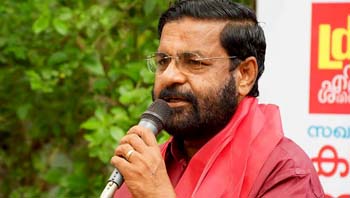Bengaluru, Feb 24: Census authorities in Karnataka have requested deputy commissioners in the state’s districts to hold outreach and awareness campaigns about the National Population Register (NPR), as they fear misgivings about the exercise could hurt the forthcoming enumeration of population.
The house-listing phase of the Census and updating of NPR will be rolled out simultaneously by mid-April in the BJP-ruled state.
About 1,50,000 enumerators will handle the massive exercise.
Officials believe widespread awareness will help address concerns about the NPR data-gathering process and make people cooperate with enumerators when they visit houses for both NPR and census work.
“Sensing the kind of questions that enumerators may face when they do house visits, in all video conferences with deputy commissioners of districts, we have requested to establish contact with local representatives,” SB Vijay Kumar, director of Census Operations in Karnataka told news agency. “We have asked them to organise outreach programmes to ensure that people’s doubts are resolved before the information gathering work begins,” he added.
Census operations are handled by the Union home ministry. Several district officials are said to have raised concerns about the possibility of people refusing to share information when the work on the census and NPR begins in two months. This would affect the quality of the census work, making the exercise incomplete.
news channel earlier reported that people in parts of Karnataka had declined to share personal information with officials visiting households in connection with government programmes, suspecting them of gathering data for the yet-to-be unveiled National Register of Citizens, following enactment of the Citizenship Amendment Act (CAA) recently.
Kumar said district authorities will train and sensitise enumerators to tread carefully while gathering information. Enumerators will be told not to demand information but seek it gently.
“We will tell enumerators to proactively engage with people. For instance, if an old man in a village does not know his exact date or place of birth, the enumerator may engage in a conversation with the person that may elicit some anecdotes and roughly establish the year and the place of birth,” the census director said.
As of now, the NPR questionnaire has 21queries, but officials say it has not yet been finalised.
With most of the census and NPR data gathering and storage happening digitally this time, the challenge before census officials is to convince people that the data would remain safe.
“Individual data is sealed and all that we can see is collective data. The information is consolidated and tailor-made. We are telling district officials to create awareness about data safety as well,” Kumar said.






Comments
The biggest weapon of RSS is spreading lies and hatred. Who can stop that N Bomb?
Oh this big mouth minister from Left, I being a person from Kerala really know truth. CPIM uses their offices and politcians house to store arms. CM Vijayan and this fellow wanted to have special darshan tickets in Sabarimala and when it was shot down.... all this stories
Raid all mosques, churches and temples and check for arms
Bamboo Sticks/ Lathis are not Weapons. Donot get Bogged down. They cannot use weapons to hurt. They just open their mouth and shout
Time for Hindus to take back Kerala and Kashmir.
Chief Minister should order police raids on these arm stores and recover the arms, and install CCTV cameras to monitor the activities round the clock. CM needs to substantiate his allegations with proof. I fully agree with his view that no religious ceremony should take place during any official function, it has no place in secular democracy. Our constitution gives every citizen right to practice religion of his or her choice freely but not at state level. State has no religion.
Here is a Minister for Temples Administration. He defines a temple as a centre for traditions and beliefs. Sorry Comrade , a temple is a place for worship of God. If it is only a place of tradition and faith, there is the danger of it being appropriated by the communist Party, which has both tradition and faith. No temple in Kerala will allow storing of weapons within, may be in its offices or quarters of staff. Is it a plan for the commies to violate the sanctity of the temples?
Add new comment